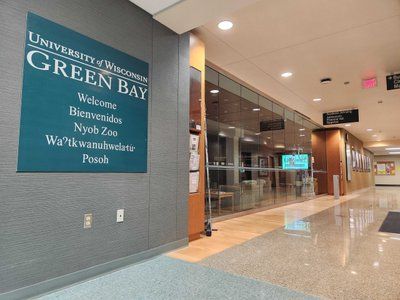A novel treatment to heal chronic wounds is among the innovations being
funded through the second round of grants from the SBIR Advance Program, a $1
million initiative that provides capital to entrepreneurs to help commercialize
high-tech innovation.
SBIR Advance partners Wisconsin
Economic Development Corporation (WEDC) and the UW-Extension Center for
Technology Commercialization (CTC) selected eight winning proposals—in addition
to the seven previously funded last fall—to receive $75,000 each.
The wound treatment is being
developed by NitricGen Inc. The Madison-based company is pioneering technology
for producing gaseous nitric oxide to heal wounds including diabetic foot
ulcers, which lead to poor quality of life for roughly 1 million patients a
year and more than 80,000 amputations annually in the U.S.
Like other SBIR Advance grant
recipients, NitricGen will receive CTC training and individualized assistance.
CTC consultants and local mentors support recipients through Lean Startup
training, commercialization plan development and review, matching products with
market needs, and other customized assistance.
“This program is perfect for
helping early-stage companies like NitricGen make meaningful progress towards
commercialization at a time when funding is at its tightest,” said Fred
Montgomery, one of the company’s co-founders. “The state SBIR matching award
will allow our company to develop a robust commercialization plan, which will
improve the likelihood of our raising investor funding and develop a successful
phase II SBIR proposal.”
Other businesses selected in
the most recent round of grants include Radom Corp. of Hales Corners, in
Milwaukee County; Northside Enterprises of Black Creek, in the Fox Valley; and
five other Madison-based companies: Swallow Solutions, AmebaGone LLC, Semba
Biosciences, Medical Engineering Innovations Inc. and inseRT MRI. Half of the
recipients are high-tech medical companies.
They are among the Wisconsin
companies already receiving federal Small Business Innovation Research (SBIR)
grants. The federal government created those programs to stimulate domestic high-tech
innovation that can be commercialized, providing $2.7 billion of federal
research funding each year. Those federal funds may be used only for technology
development.
SBIR Advance aims to fill
critical funding gaps for activities such as market research, customer
validation, patent development and regulatory assessment restricted under
federal awards. WEDC is funding and CTC is administering SBIR Advance, which
was launched in July.
“Competition was intense, which
illustrates the demand for what this program offers,” said CTC Director Bon
Wikenheiser. “SBIR Advance helps early-stage companies focus on customer
development and validation and secure further private and federal funding. It
also prepares them to commercialize products and obtain customers.”
“Once again, SBIR Advance is
playing a vital role in helping early-stage Wisconsin companies take that next
step toward commercialization,” said Reed Hall, secretary and CEO of WEDC, the
state’s lead economic development organization. “Through this joint effort with
CTC, we are filling a crucial gap for companies that have qualified for federal
funding but still need assistance with areas that cannot be funded with federal
dollars.”
For information on SBIR
Advance, visit www.wisconsinsbir.org
or contact Todd Strother, program
manager, at todd.strother@uwex.edu.
SBIR Advance is part of a new Start-Seed-Scale (S3) initiative WEDC is pursuing
with the help of the UW System and other business leaders throughout the state
to remove barriers to high-tech commercialization. Under the S3 umbrella, WEDC and its
economic development partners are implementing financial and operational
assistance programs designed specifically to address Wisconsin’s business
startup and seed-funding challenges. One such initiative—also a collaborative
effort between WEDC and the UW System—is a seed fund called Ideadvance also
managed by UW-Extension’s CTC. Selected SBIR Advance participants have joined
the Ideadvance cohort in Lean Startup training.





